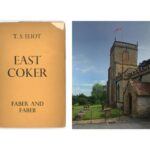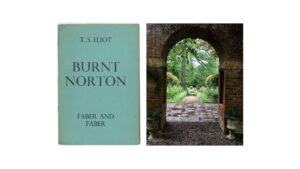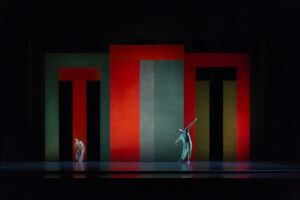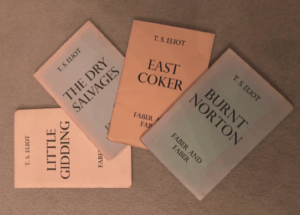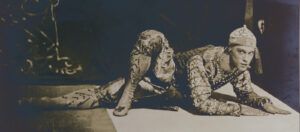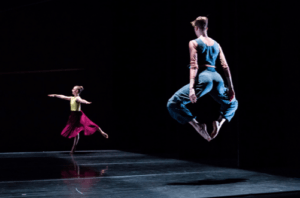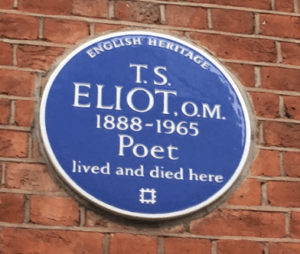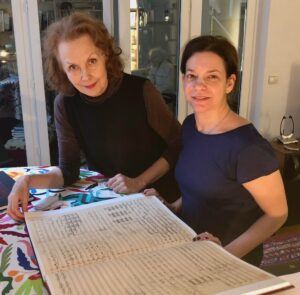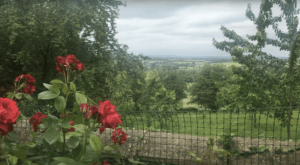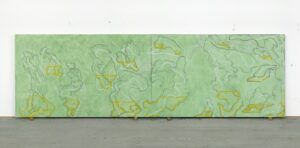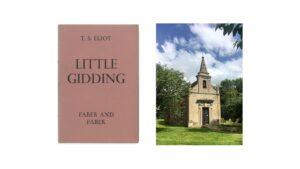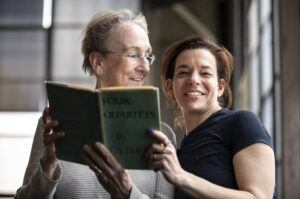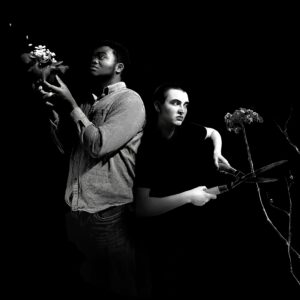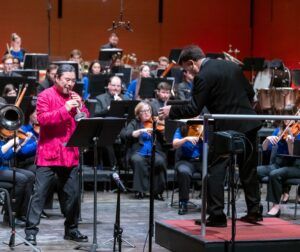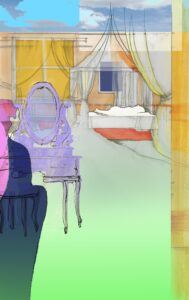“In my beginning is my end.”
The core of East Coker is the cycle of birth and death and the place that inspired the poem is deeply connected to the beginning and end of Eliot’s own life. This tiny hamlet in Somerset was home to the poet’s ancestors, one of whom, Andrew Eliot, emigrated to the New World in 1669. It is also Eliot’s final resting place; he and Valerie are buried in the village church which dates from the late 12th century.
As we drove into the village we were again struck by the accuracy of Eliot’s description. Typically for this region of southwest England, the road is sunken, with high banks and hedges on either side. Eliot paints it evocatively:
And the deep lane insists on the direction
Into the village, in the electric heat
Hypnotised. In a warm haze the sultry light
Is absorbed, not refracted, by grey stone.
The dahlias sleep in the empty silence.
Indeed the village is built from grey stone and yes – there were dahlias blooming on the warm summer day. After lunch in the village pub we climbed the hill to the little medieval church of St Michael and All Angels. Inside, a simple plaque marks the resting place of Thomas and Valerie Eliot, quoting the opening and closing lines of the first section East Coker.
We walked out into the churchyard and looked across at the fields in which Eliot imagined the ghosts of his ancestors dancing:
In that open field
If you do not come too close, if you do not come too close,
On a summer midnight, you can hear the music
Of the weak pipe and the little drum
And see them dancing around the bonfire.
We then sat down on a bench in the churchyard, imagining the one time that Eliot visited the village while alive, to pay homage to his ancestors. That was in 1937, three years before he published East Coker. We were reading the poem aloud when we were suddenly startled by a long peal of church bells. It was three o’clock. Only in hindsight did we remember that other bell in the garden at Burnt Norton; on that summer’s afternoon the tolling bell in the country churchyard seemed to us merely an expression of this beautiful place where Eliot once walked and where he now rests.
